Coronavirus symptoms guide: Everything you need to know about virus
Doctors have slammed misinformation surrounding coronavirus prevention measures, as experts explain what you and your family should do to protect yourself and when to seek help.
Health
Don't miss out on the headlines from Health. Followed categories will be added to My News.
- Ten more infected on cruise ship as Aussies go to quarantine
- Inside the plush village to house 3500 virus victims
The new coronavirus from China has a death rate of around two per cent, making it four times more deadly than influenza.
One in four people will have severe symptoms.
And there is a vaccine to protect against the flu but none for the coronavirus.
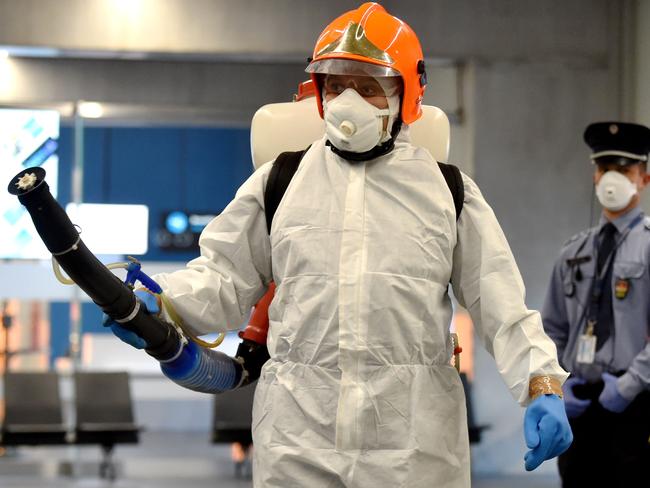
Australians are right to take the virus seriously.
Globally 28,000 people now have the deadly coronavirus and as panic spreads Chinese populated shopping centres are being deserted and hospitals are choked with anxious people demanding tests.
This is even though it is extremely unlikely Australians will catch the virus unless they have been to China or in contact with someone else who has.
Hundreds of Australians have been tested for the virus but as of Thursday there have been 15 confirmed cases of coronavirus in Australia 4 in NSW, 4 in Victoria, 5 in Queensland and 2 in South Australia.
All of the cases in Australia have come from Wuhan except one in NSW who had contact in China with a confirmed case in Wuhan.
Three of these people have recovered from the virus and the others are in a stable condition, there have been no deaths in Australia.
However, the death rate for coronavirus far less than for SARS which killed one on ten people who contracted it or MERS which killed one in three people.
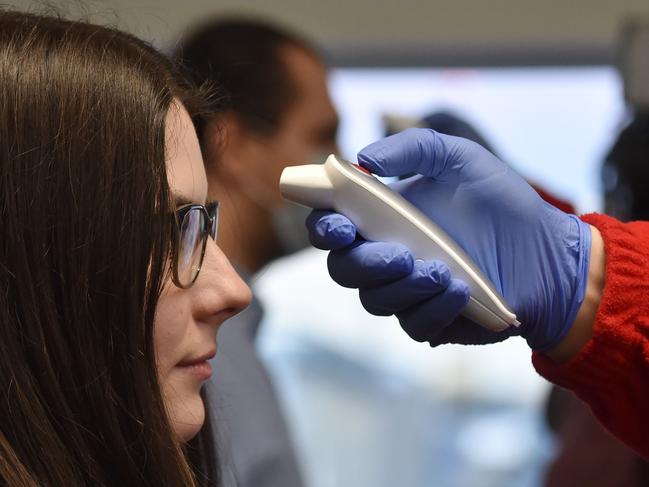
Australian University Infectious diseases expert Professor Peter Collignon warns the big problem is coronavirus is far more infectious so more people will get it.
Only 8000 people caught SARS, around 28,000 now have coronavirus.
“A death rate of one in 1,000 is good but not if it spreads to one million people because then you’ve got 1,000 deaths,” he said.
To date Australia has done a very good job containing the infection by isolating those who have the virus and tracing the people they came into contact with and monitoring them.
From February 1 travel restrictions have prevented foreign nationals entering Australia if they have been in China.
RESPIRATORY MASK MISINFORMATION
Australian doctor Danform Lim has spoken out about the misinformation and theories of masks used to prevent the coronavirus, which are circulating online.
He told the ABC his patients had thought respiratory masks could be recycled and sanitised by being steamed or microwaved – and these incorrect messages were being shared on platforms like WeChat and WhatsApp.
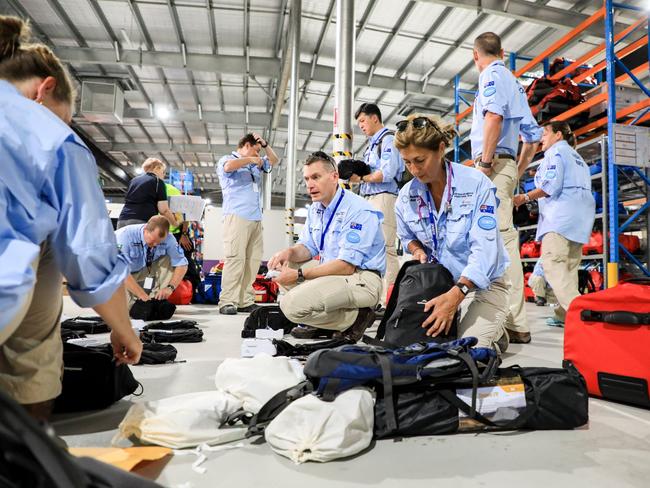
Dr Lim is the senior vice president of the Australian Chinese Medical Association and said “people (did not” understand the consequences of forwarding an unverifiable source of information.”
“Verify it with the government website or university sources,” he said.
HOW TO PROTECT YOURSELF
Face masks and hand sanitisers are good ways of protecting yourself against the virus but these are selling out fast as people begin to panic.
It is crucial there are enough face masks and protective equipment for medical staff on the front line because they are much more likely to be at risk than people in the general community.
The Chief Medical Officer Brendan Murphy has said the general public do not need to wear masks as they go about their everyday business.
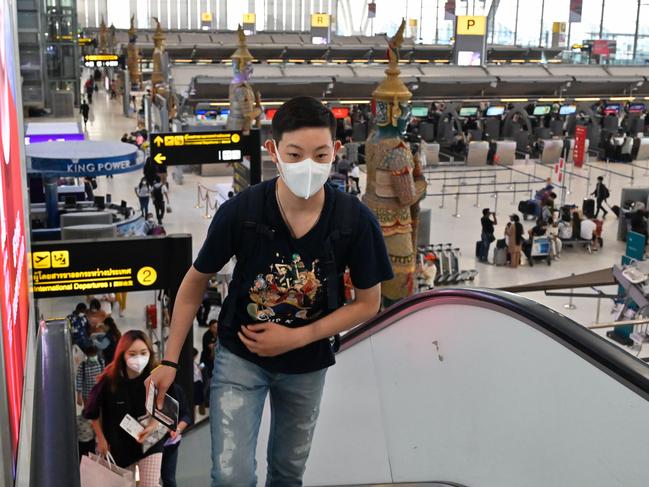
The Government has a massive stockpile of surgical masks and has already released around one million to help GPs and medical staff cope.
Washing hands regularly with alcohol wipe is a good way to reduce your risk of infection as it avoiding contact with door knobs and other surfaces touched by others.
Use a tissue and cover your mouth and nose when you cough or sneeze
HOW CORONAVIRUS SPREADS
The coronavirus is most likely spread from person to person through:
• Direct close contact with a person while they are infectious
• Contact with droplets when a person with a confirmed infection coughs or sneezes
• Touching objects or surfaces (like doorknobs or tables) that has droplets from a cough or sneeze by an infected person, and then touching your mouth or face
Professor Collignon says standing a metre away from other people is also likely to help protect you from getting infected.
CORONAVIRUS SYMPTOMS AND WHEN TO RING A GP
Symptoms of the virus include fever, cough, fatigue and difficulty breathing.
A study of the first 41 patients in China found only one in four people produced sputum, less than one in ten had a headache and one person had diarrhoea.
People who are worried they have an infection are advised to ring ahead to their GP and isolate themselves from others.
COMMON MYTHS ABOUT CORONAVIRUS
The NSW Chief Medical Officer Dr Kerry Chant also dispelled myths about the coronavirus circulating in the community.
“There have been multiple incorrect and alarmist social media posts regarding the spread and severity of the disease, prompting NSW Health to remind all residents to fact check,” she said.
“I ask the public to be aware of the facts about the novel coronavirus and take a moment to investigate unverified claims before they share them with others,” Dr Chant said.
NSW Health was particularly keen to dispel five common myths about the novel coronavirus.
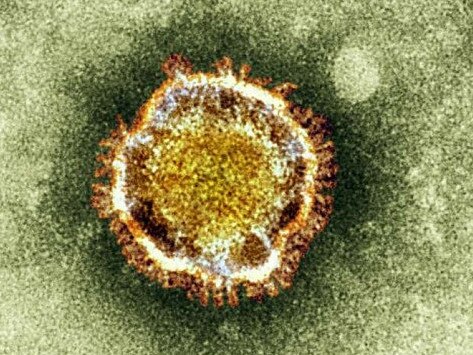
• You should avoid Chinatown/shopping centres/suburbs with high Chinese/Australian populations – FALSE. While four cases have been diagnosed in NSW to date, patients have been isolated until no longer infectious and there is no evidence that community transmission is occurring in NSW.
• You can get the novel coronavirus from an imported package of food – FALSE. The novel coronavirus does not appear to last very long on surfaces. Therefore imported products do not pose a risk of transmission of this virus.
• Garlic and sesame oil will stop me from contracting novel coronavirus – FALSE. The best way to protect yourself is the same as you would against any respiratory infection. Practice good hygiene by: a. covering your nose and mouth when coughing and sneezing with tissue or a flexed elbow; b. making sure to clean your hands thoroughly for at least 20 seconds with soap and water, or an alcohol-based hand rub; and c. avoiding close contact with anyone with cold or flu-like symptoms.
• The virus has mutated into a more lethal strain – FALSE. This was debunked by the World Health Organisation (WHO).
• Can I catch novel coronavirus from my pet? — FALSE. While the 2019-nCoV may have come from animals, domestic pets do not pose a risk of transmission in Australia
CORONAVIRUS PHONE HOTLINES TO CALL
There is a National Coronavirus Health Information Line 1800 020 080, providing public health information.
People seeking medical information should call registered nurses on health direct – 1800 022 222.
Originally published as Coronavirus symptoms guide: Everything you need to know about virus
